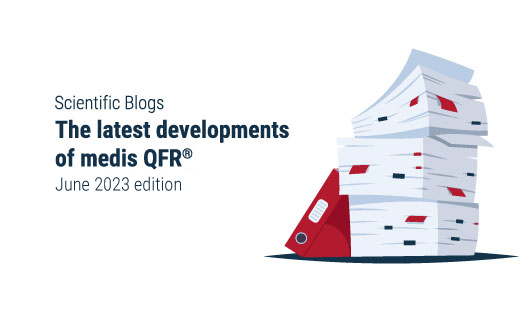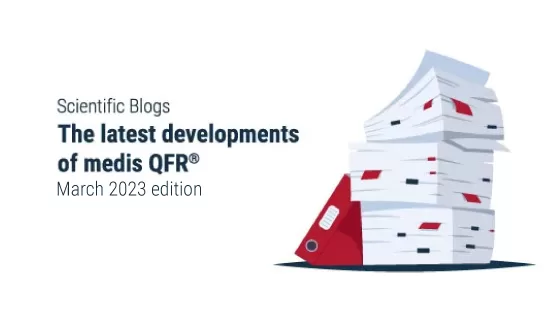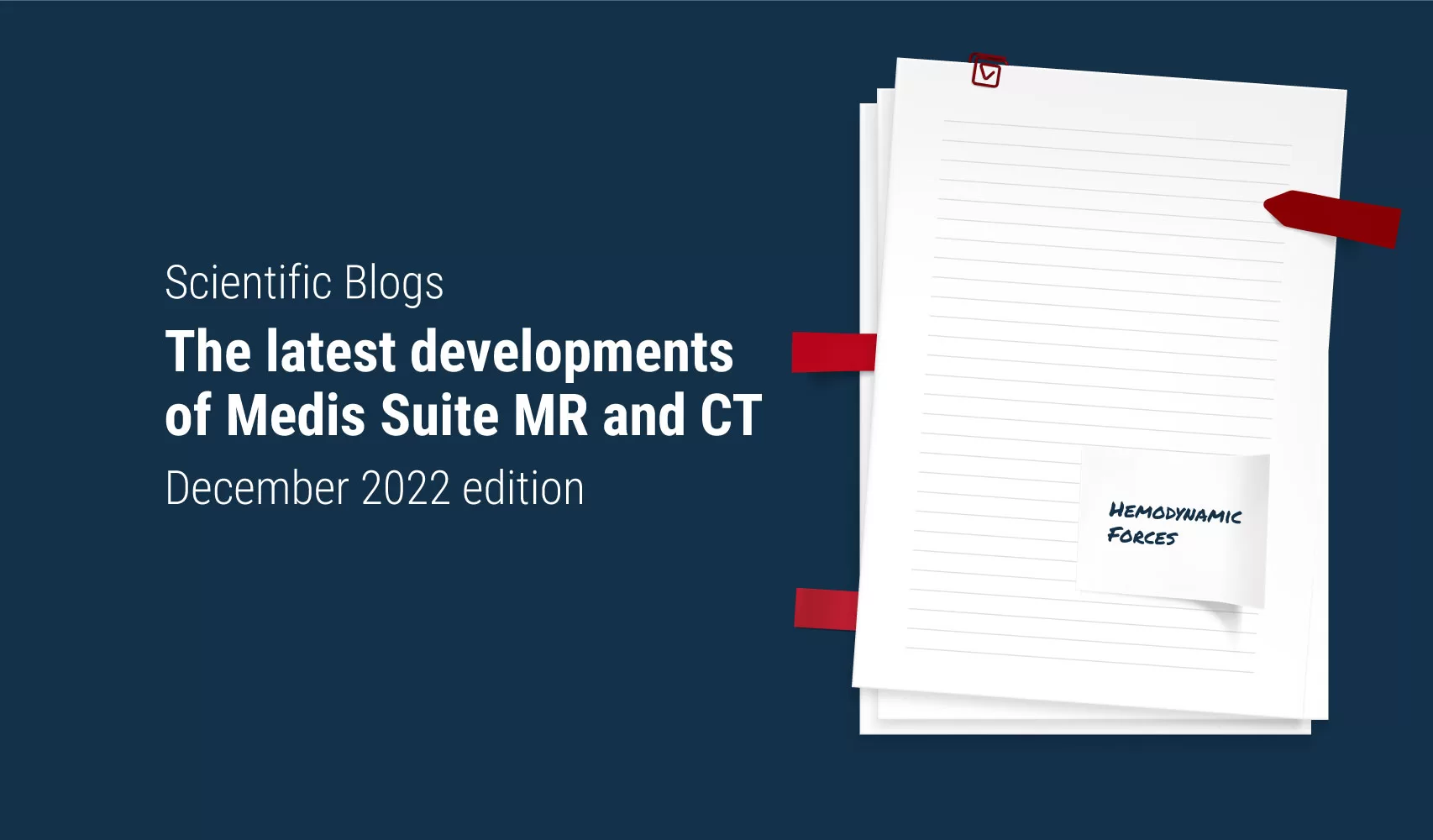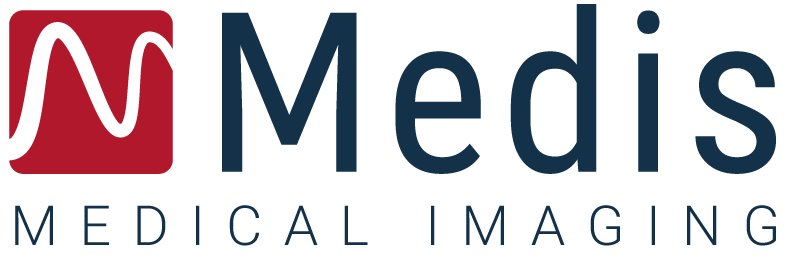Scientific Blogs
The latest developments of Medis QFR®
July 2023 edition
7 mins – July 11, 2023 – Written by Prof. Hans Reiber
We are delighted to present to you our latest Medis QFR® blog. By keeping you informed about the advancements and benefits of Medis QFR® in this rapidly evolving field, we strive to support your decision-making process and contribute to improved patient outcomes. Whether it’s the evaluation of lesion significance, personalized treatment decisions, or reducing adverse events, we aim to cover a broad range of topics related to Medis QFR® ‘s application and efficacy. This innovative and angio-based solution for coronary physiology has gained significant recognition and is extensively utilized in clinical research and practice globally. Discover five key publications that highlight the latest developments in Medis QFR® and join us in revolutionizing coronary physiology assessment. Keep informed, enhance patient care.
In this new Medis QFR® blog, we are proud to share five publications on the latest developments of Medis QFR with you.

Comparison of Quantitative Flow Ratio with instantaneous wave-free ratio and resting full-cycle ratio during daily routine in the catheterization laboratory.
Dr. J. Stader from the University Hospital Leipzig in Germany under the supervision of dr. K. Lenk published this prospective, single-center study which includes 102 patients with an indication for elective coronary angiography in the Catheterization and Cardiovascular Interventions Journal. In this population the QFR was compared with the iFR or RFR. The AuC for all measurements was 0.93 for QFR compared to iFR or RFR. QFR required less time (501 sec) compared to iFR or RFR (734 sec). The median use of contrast was similar. However, QFR diagnostics required less radiation: median dose area product was 307 cGycm2 compared to 599 cGycm2 for iFR or RFR. The authors concluded that QFR correlate with iFR or RFR and are associated with shorter procedure times and reduced radiation dose.
For further read: click here


Angiography-derived and sensor-wire methods to assess coronary microvascular dysfunction in patients with acute myocardial infarction.
Dr. R. Scarcini from the University of Verona, Italy and multiple co-authors under the senior supervision of Dr. G.L. de Maria from the Oxford Heart Center in the UK published this paper in JACC Imaging. This is a great and very complete overview on the available conventional and novel methods to assess coronary microvascular dysfunction in patients with STEMI. The authors also provide a proposed procedural algorithm in Figure 6 of the paper to facilitate optimal use of wire-based and angiography-based indices in the acute setting of STEMI.
For further read: click here


Non-invasive angiographic-based fractional flow reserve: technical development, clinical implications and future perspectives.
Dr. J. Peper and colleagues from the St Antonius Hospital in Nieuwegein and UMCU in Utrecht, the Netherlands under the supervison of dr. M.J. Swaans published this Review paper in Current Medical Science. It provides an overview of the developments and validations of the virtual FFR-algorithms, including Medis QFR, stating the challenges, discusses the upcoming clinical trials, and postulates the future role of virtual FFR in the clinical practice.Dr J Peper and colleagues from the St Antonius Hospital in Nieuwegein and UMCU in Utrecht, the Netherlands under the supervison of dr MJ Swaans published this Review paper in Current Medical Science. It provides an overview of the developments and validations of the virtual FFR-algorithms, including Medis QFR, stating the challenges, discusses the upcoming clinical trials, and postulates the future role of virtual FFR in the clinical practice.
For further read: click here

Quantitative Flow Ratio as a continuous predictor of myocardial infarction.
Dr. C. Guan and co-authors under the supervision of B. Xu, of the National Clinical Research Center for Cardiovascular Diseases at Fuwai Hospital in Bejing, China published this paper in EuroIntervention. In this paper the possible association between the continuous QFR values and myocardial infarction (MI) as affected by PCI vs medical therapy was investigated in a corelab analysis of the FAVOR III China data (5564 vessels) and the PANDA III data (4471 vessels). The QFR analysis was based on the traditional 3D QCA and the TIMI frame count. It was demonstrated that the PCI reduced the MI risk in vessels with a QFR ≤ 0.80, but increased the MI risk in vessels with a QFR > 0.80, compared with medical therapy at 2 years FU. Also, continuous QFR showed an inverse association with spontaneous MI, that was reduced by PCI compared to medical therapy. The net benefit for PCI over medical therapy to reduce total MI begins at QFR ≤ 0.64. The authors conclude that these novel findings provide physicians with an angiographic tool for optimizing vessel selection for PCI.
For further read: click here

Coronary angiography upgraded by imaging post-processing: present and future directions.
Dr. B. Caullery, L. Riou and B. Barone-Rochette from the University hospital in Grenoble published a very interesting review paper in Diagnostics. They describe the different advances in the field of angio-based coronary physiology, including Medis QFR, and their future perspectives offered by this new technology. Among others, they propose an algorithm for post-PCI optimization, and of course describe the interest in angio-based microcirculatory dysfunction. They conclude that invasive coronary angiography is an examination that now allows both anatomical and physiological analysis of the coronary tree. The widespread use of these devices will allow for the conduct of randomized studies focused on clinical outcomes. Such studies represent an essential step in the validation of these new technologies in clinical practice.
For further read: click here
Share this article on:
Related articles

The latest developments of Medis QFR®
June 2023 edition

The latest developments of Medis QFR®
March 2023 edition

The latest developments of Medis Suite MR and CT
December 2023 edition
